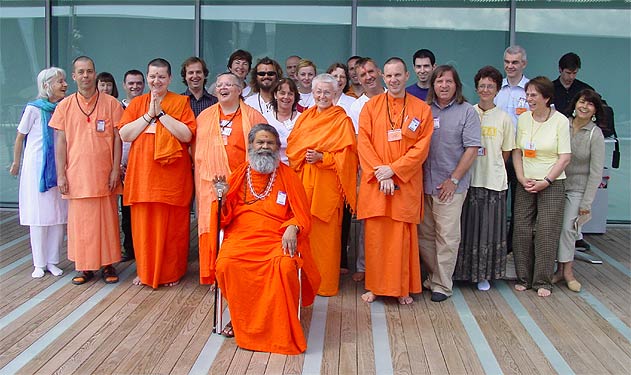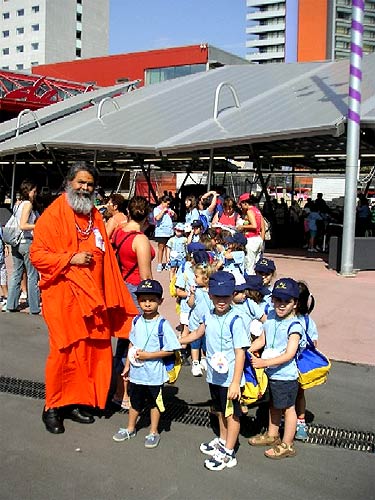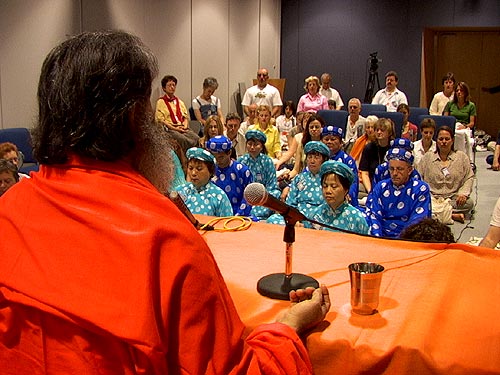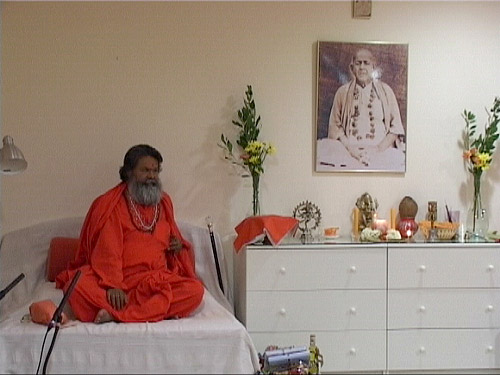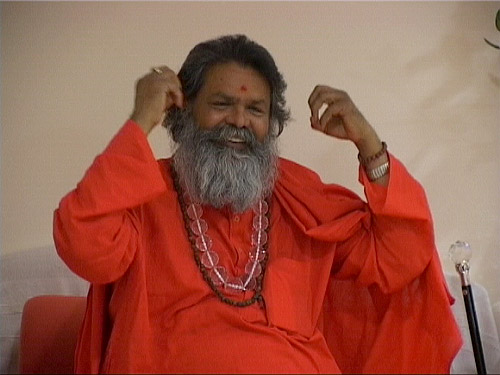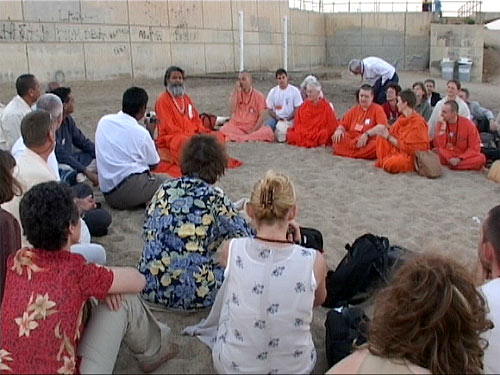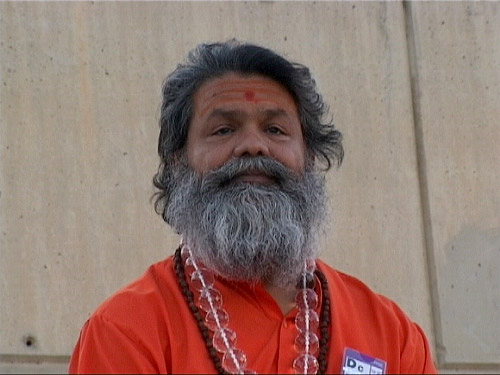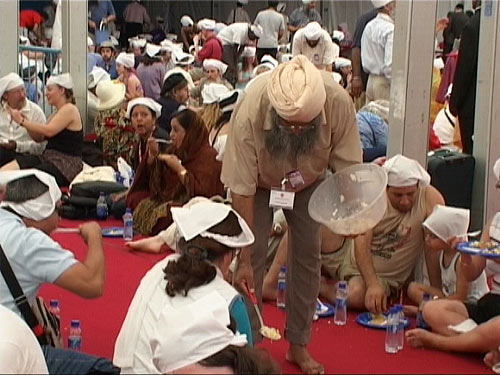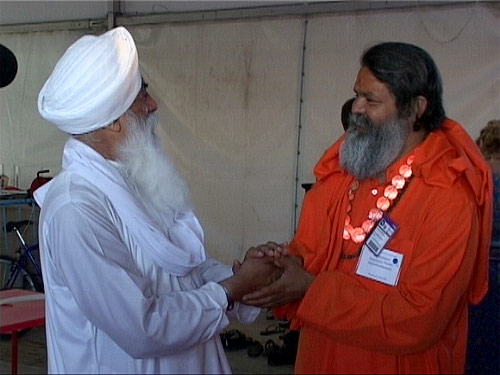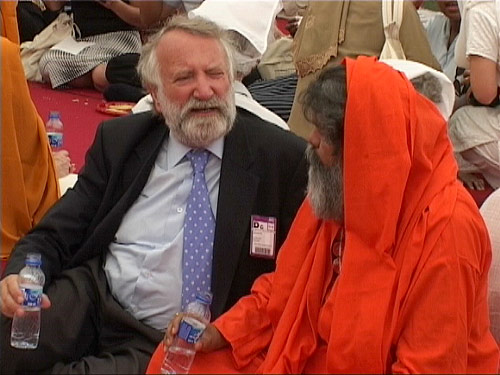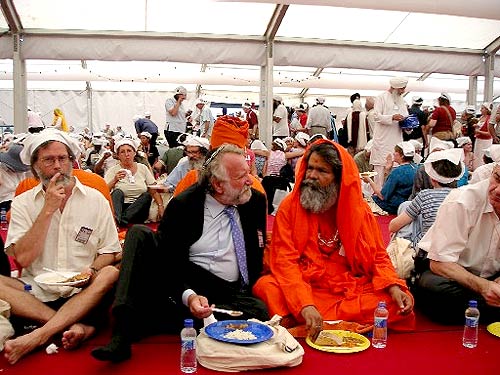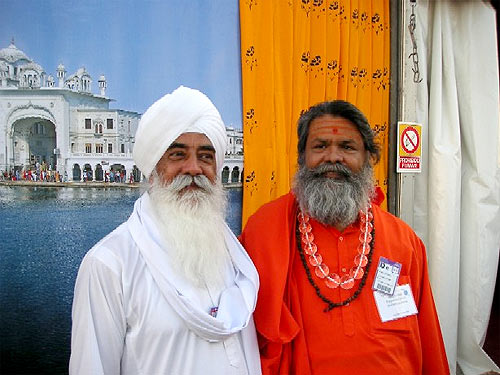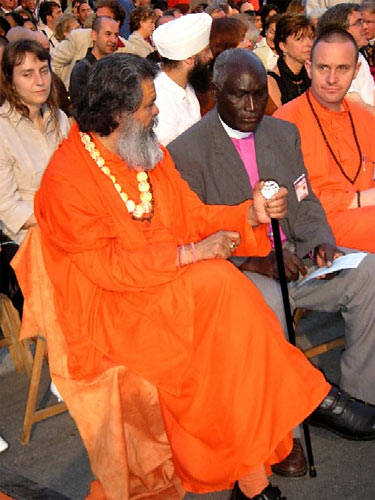2004 Parliament of the World’s Religions, Barcelona/Spain
Introduction
Nearly five months after the March 11, 2004 terrorist attack on Madrid, the world’s largest interreligious gathering will convene in Spain for the fourth ever Parliament and the first since September 11, 2001. The event — last held in Cape Town, South Africa in 1999 — will be in Barcelona from July 7 - 13 and is expected to draw thousands of people of faith and spirit from around the world to find inspiration and forge new pathways to peace in the new age of international terrorism.
The fourth Parliament of the World’s Religions is organized in association with the UNESCO Centre of Catalonia and the Universal Forum of Cultures – Barcelona 2004. The 2004 Parliament’s theme is "Pathways to Peace: the Wisdom of Listening, the Power of Commitment".
This is one of the world's greatest interreligious gathering of the dozen of major religions in the world and of hundreds of religious and spiritual movements from the five continents. More than 400 workshops and cultural and spiritual celebrations will take place throughout the whole duration of the Parliament which is going to be a festive celebration of cultural and spiritual diversity, and a demonstration of understanding, against all forms of violence perpetrated in the name of religion.
"Yoga in Daily Life" was also present at the 2004 Parliament. The founder, His Holiness Mahamandaleshwar Paramhans Swami Maheshwarananda, has taken active part at several programs & sessions and held workshops on the Self-Inquiry Meditation technique.
From July 5 till 7 a preparatory Assembly of spiritual and religious representatives was held in Montserrat Abbey outside Barcelona, where Swamiji was invited as one of key-note speakers.
The 2004 Parliament of the World’s Religions started in Barcelona on July 7. 6000 to 7000 people of all ages from 75 countries arrived for the opening of this grand event.
From July 8 on, various programs, sessions, gatherings and special multi-religious and multi-cultural events went on around the clock. Swamiji was guiding a morning Self-Inquiry meditation and was later on invited to speak at the Symposium on Interfaith Education. Swamiji's further programs included a public lecture on Hinduism and it's contribution to tolerance and understanding among different religions (on July 9) and participation in the peace prayer event, opening a concert in the "Holy Family Basilica" of Barcelona (July 10).
History
The Council for a Parliament of the World’s Religions (CPWR) is a Chicago-based, interreligious organization that cultivates harmony between the world’s religious and spiritual communities and fosters their engagement with the world and other guiding institutions to achieve a vision of a peaceful, just and sustainable world.
Approximately every five years, the Council organizes and conducts a Parliament of the World’s Religions, an interreligious gathering of thousands of international attendees from various religious and spiritual backgrounds who convene to find inspiration and renewal and forge new pathways to peace through a week of seminars, workshops, symposia, performances and other encounters. Previous and upcoming Parliaments include:
1893, Chicago
Representatives from eastern and western spiritual traditions met for the first time for structured dialogue. The Parliament is credited as the first time Jews, Catholics, Bahá'ís, Buddhists and Hindus were invited to such an exchange. Twelve thousand and more visitors came each day to the building that would become the Chicago Art Institute. Swami Vivekananda, a Hindu who arrived initially without invitation, and then was embraced, particularly electrified the public forums. His charisma, intellect, and generous heart repeatedly challenged the assumption (held by most of the Parliament's planners) that Christianity has a lock on the love of God and could "perfect" whatever goodness and wisdom other religions brought to the table. The crowd rose to its feet to greet this monk in bright saffron robes as soon as he began with the words, "Sisters and brothers of America...". "The Christian is not to become a Hindu or a Buddhist, nor a Hindu or a Buddhist to become a Christian. But each must assimilate the spirit of the others and yet preserve his individuality and grow according to his own law of growth," he said in Chicago. He compared the love of God flowing through different religions to rivers all headed towards the sea. He argued with the notion that any religion can claim exclusive franchise on the divine, and he sought friendship and common cause among people from all traditions.
Swami Vivekanandaji's speeches in Chicago: http://www.sriramakrishna.org/chicago.htm


1993, Chicago
International in scope but committed to and relevant for Chicago’s local communities, the centennial event attracted 8,000 people from across the globe and explored identity, dialogue and responses to critical issues. The assembly gave its assent to Towards a Global Ethic: An Initial Declaration, a groundbreaking declaration on the ethical common ground shared by the world’s religious and spiritual traditions.

1999, Cape Town
Held in South Africa to showcase the powerful role spiritual communities played in the struggle against apartheid, for reconciliation and to confront AIDS. The Council presented A Call to Guiding Institutions, a document inviting religious, government, business, education and media institutions to use their power to better foster harmony and understanding.
1999 Parliament report: http://www.cpwr.org/who/99report.pdf
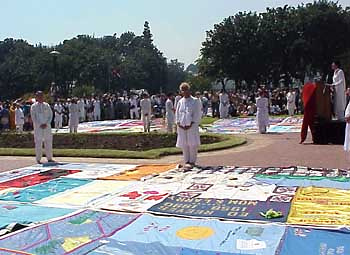
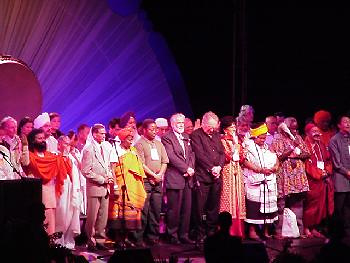
2004, Barcelona
Organized in association with the UNESCO Centre of Catalonia and the Universal Forum of Cultures – Barcelona 2004, and held July 7-13 during the Universal Forum of Cultures Barcelona 2004, the 2004 Parliament’s theme is "Pathways to Peace: the Wisdom of Listening, the Power of Commitment." It will highlight strategies to help communities transform the world through real action, and attendees will be invited to commit to “simple and profound acts” on a community-level in relation to four issues: improving the plight of refugees, relieving the burden of international debt, overcoming religiously-motivated violence and increasing access to clean water.
2004 Parliament website: http://www.cpwr.org/2004Parliament/welcome/index.htm
The 2004 Parliament
The fourth Parliament of the World’s Religions, to be held July 7 to 13, 2004 in Barcelona, Spain, is organized in association with the UNESCO Centre of Catalonia and the Universal Forum of Cultures – Barcelona 2004. The 2004 Parliament’s theme is "Pathways to Peace: the Wisdom of Listening, the Power of Commitment".This unique international interreligious gathering will take place within the context of the 141-day Universal Forum of Cultures, an unprecedented series of conferences, congresses and debates exploring peace, diversity and sustainability.
Thousands of participants from around the world will convene to:
- seek peace, justice and sustainability and commit to work for a better world,
- acknowledge the humanity of the other and broaden our sense of community,
- foster mutual understanding and respect and learn to live in harmony in the midst of diversity, and
- deepen spirituality and experience personal transformation.
Participants will have opportunities to select from over 400 carefully selected programs and performances relating to spiritual practice, religious identity, and intra and interreligious dialogue. The 2004 Parliament of the World’s Religions will also highlight strategies to help communities of faith transform the world through real action. Throughout this inspiring gathering, participants will be invited to commit to "simple and profound acts" on a community-level in relation to four issues:
- improving the plight of refugees,
- relieving the burden of international debt,
- overcoming religiously-motivated violence and
- increasing access to clean water.
Preliminary Assembly in Monserrat
His Holiness, Vishwaguru Mahamandaleshwar Paramhans Swami Maheshwarananda Ji has been invited as a key-note speaker to attend a 3 day Assembly (July 5-7, 2004) held by the Council for a Parliament of World Religions, in Spain. This international gathering of selected spiritual leaders from all the world’s religions, has united together to focus on four global issues: the plight of refugees, lack of safe drinking water, overcoming religiously motivated violence and eliminating international debt in poor countries.
His Holiness Swamiji was warmly greeted by the Benedictine Monks of the Catholic Monastery Montserrat, where the Assembly is being held, and asked to participate in the opening ceremonies.
As a long time advocate on the subject of water, His Holiness Swamiji is holding discussions at this Assembly to identify solutions for access to safe drinking water. United Nations statistics estimate 1.1 billion people without reliable access to clean water, and it is predicted to get considerably worse in the next 21 years. His Holiness Swamiji says water is "white gold" and as such should be treasured and not wasted. Access to clean water he says is a basic human right, for every man, woman & child.
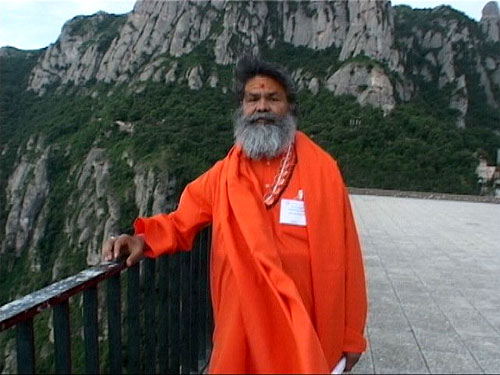
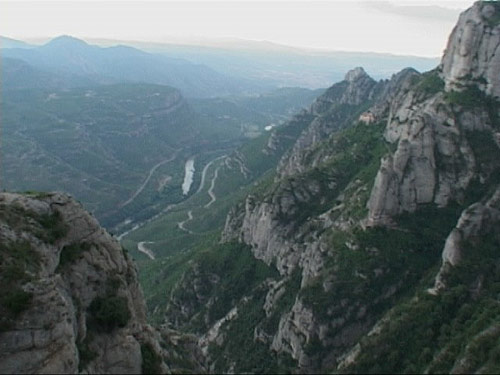
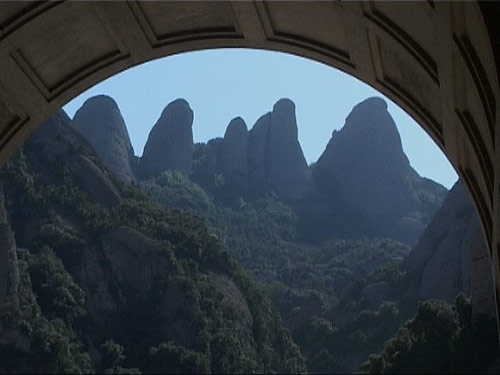
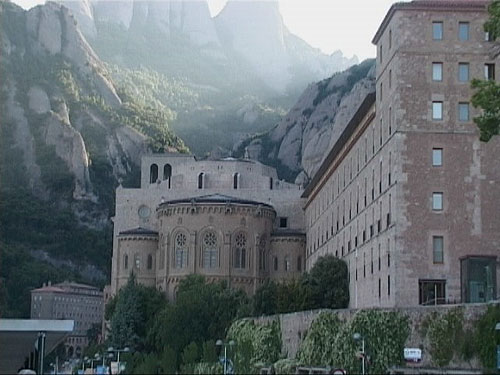
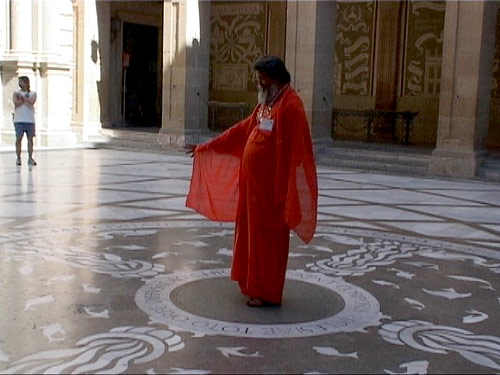
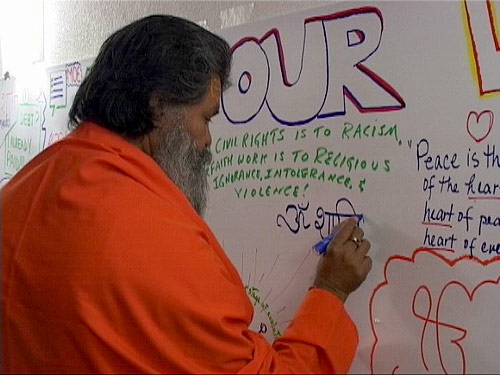
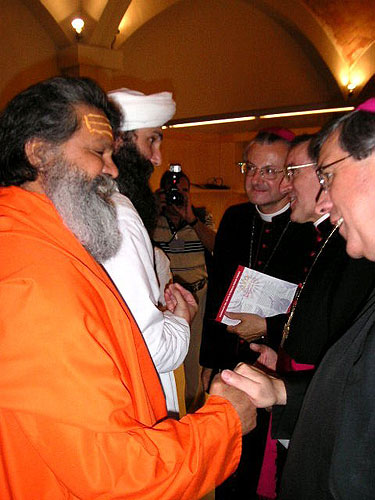
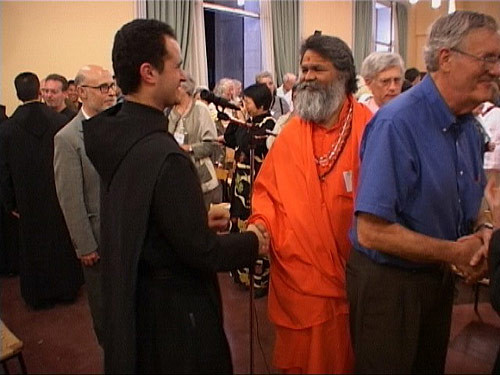
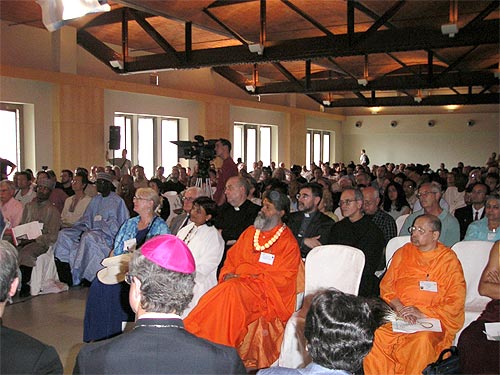
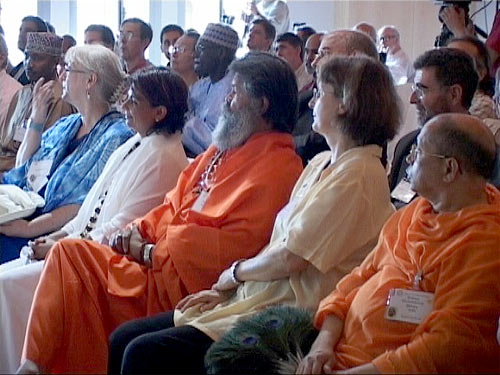
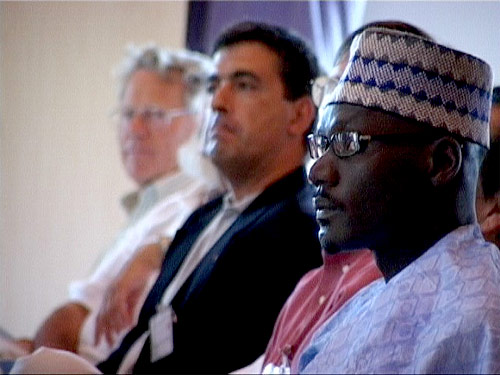
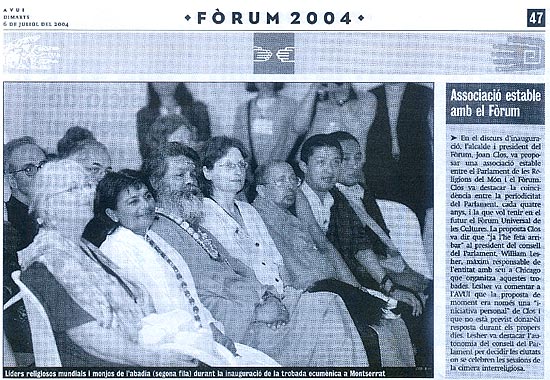
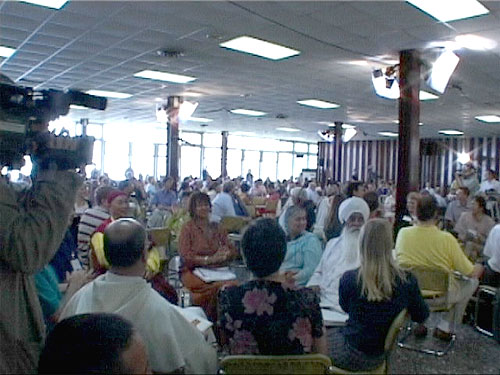
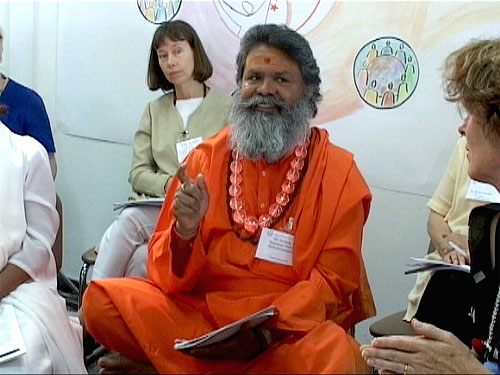
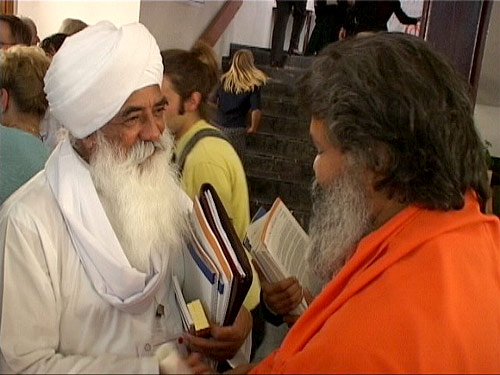
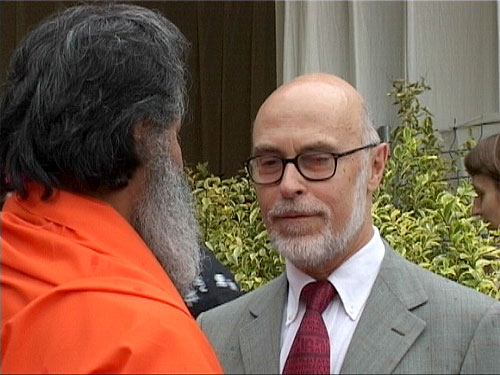
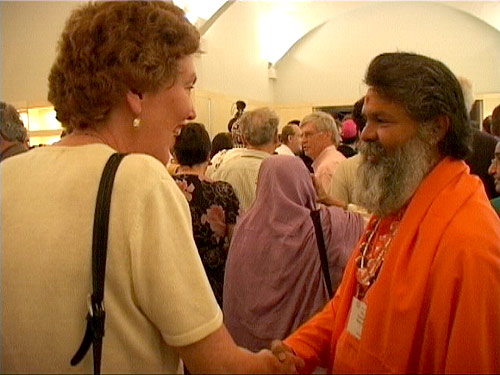
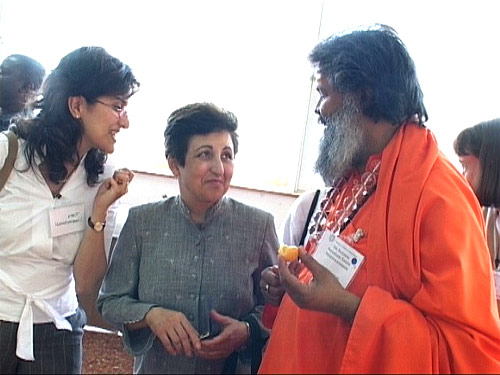
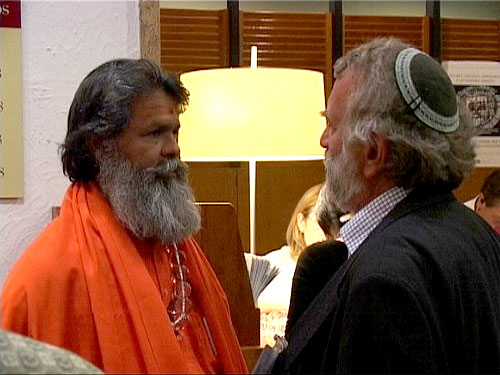
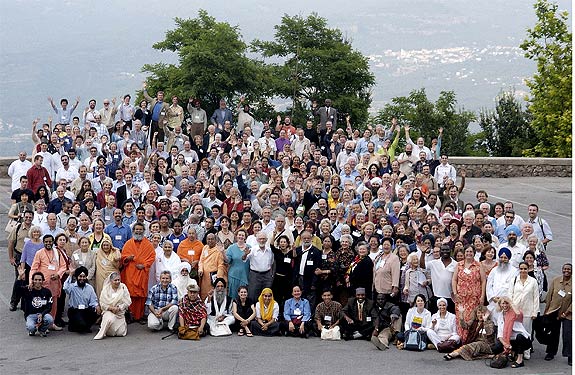
Symposium on Interfaith Education
His Holiness Vishwaguru Mahamandaleshwar Paramhans Swami Maheshwarananda was asked to speak at the Symposium on Interfaith Education. As usual, Swamiji spoke in a very impressive way and also very concretely requested other speakers and visitors not only to speak or listen to nice words but to realize them and in this way educate others towards tolerance and respect.

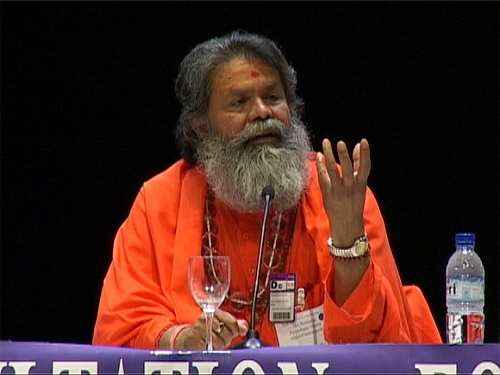
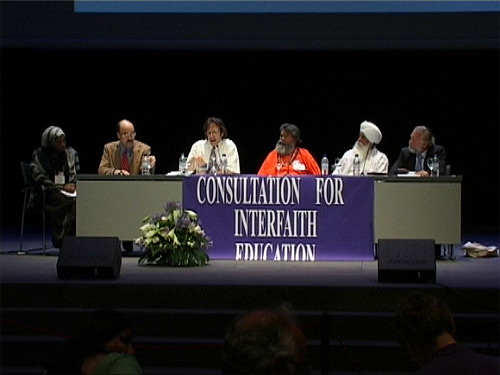
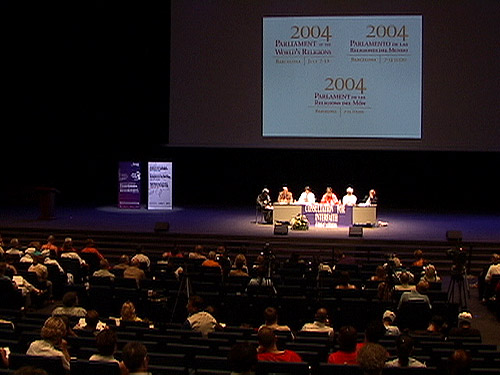
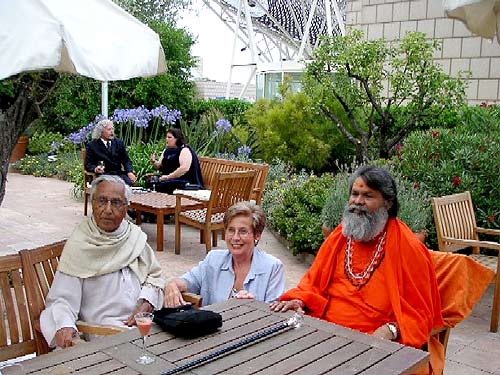
Keynote address on Hinduism
On July 9, His Holiness Vishwaguru Mahamandaleshwar Paramhans Swami Maheshwarananda gave a keynote address at the Council for a Parliament of World Religions, on the subject of "Hinduism: Valuing Diversity and Promoting Harmony Through its Practice and Application". To the audience from diverse backgrounds, His Holiness explained Hinduism is the oldest religion on this planet and that one of the greatest virtues of Hinduism is its tolerance and acceptance that God can be worshipped in many forms. He said, that unlike other faiths such as Buddhism and Christianity, which were created or developed after the inspiration of some Holy person such as Buddha or Christ, Hinduism was not ‘man-made’. His Holiness Swamiji said that Hinduism was based on Sat Sanatan Dharma. Sanatan means relation and Dharma means to realise. Therefore Sanatan Dharma means to realise one’s relation to one’s religion, to God. That is Hinduism. Steeped in Sanatan Dharma, Hinduism is an eternal religion with eternal principles.
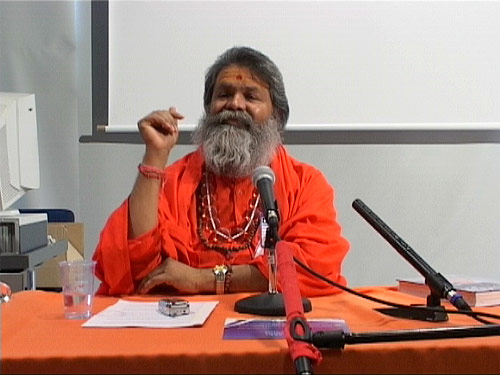
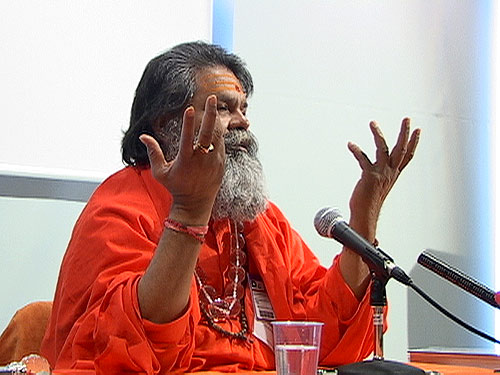
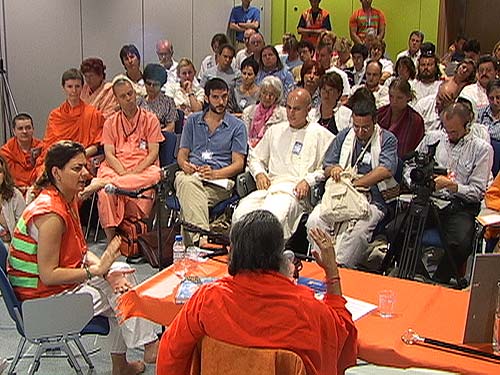
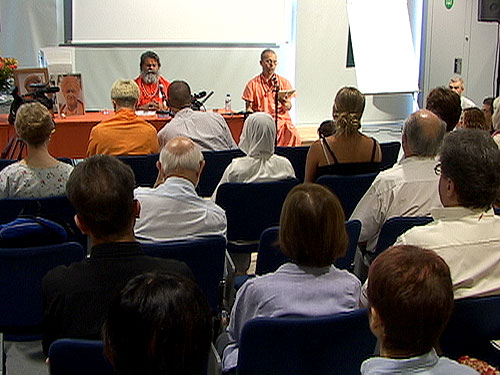
Gathering of Hindus
In the context of the Gatherings of the Parliament of World Religions (July 9), His Holiness Vishwaguru Mahamandaleshwar Paramhans Swami Maheshwarananda said that no religion should be excluded. To exclude any religion means as a human race we lose the sight of one eye. All religions of the world, he said, contribute to a healthy human society. Hinduism tolerates, welcomes and accepts all religions. As a country, India is an example to the rest of the world for its religious tolerance, because it is home to all religions, he explained. His Holiness further said that it is unfortunate in today’s world that some politicians use religion for their own individual aims. Swamiji requested all religions of the world to help each other overcome human suffering, not create wars.
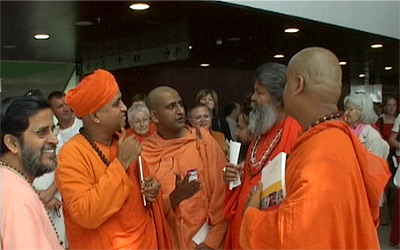
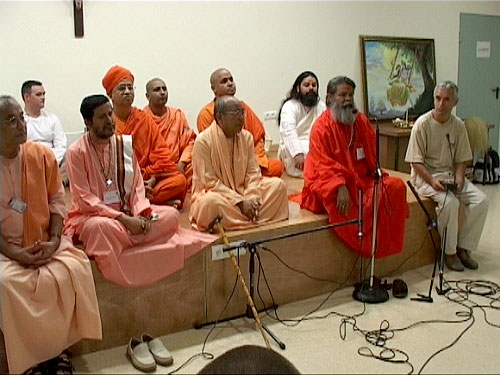
Other activities
Nice satsangs were held in YIDL's Barcelona Ashram, where Swamiji spoke about Sanatana Dharma. Greatness and speciality of Sanatana Dharma is that all saints are equally worshipped, all religions are equally respected, nobody needs to change his faith and everybody can and should pray to God, wherever his feelings are addressed and towards whomever he feels close and united. In Sanatana Dharma tolerance, respect and understanding are realized and converted into action.
Swamiji commented that one thing has really stood out in the Forum for him and that was the wonderful seva our Sikh brothers and sisters are doing at the Langar (bhandara) - they are feeding everyone at the Forum (3000 to 4000 people) delicious vegetarian food!
As a part of the "Morning Observances" programme of different religious and spiritual backgrounds Swamiji has guided morning Self-Inquiry meditations which were very well attended.
Swamiji was invited, as a representative of Hinduism, to say a peace prayer as an introduction to a sacred music concert in the "Holy Family Basilica" (a symbol of Barcelona).
